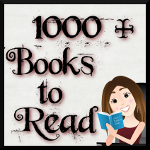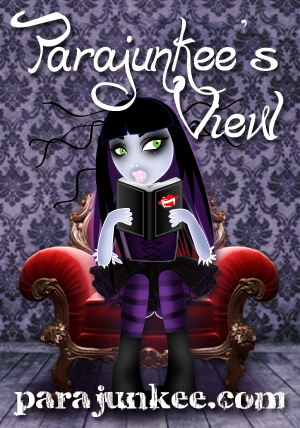Writing Enchantment has been an adventure because I returned from my first novel (Heidegger’s Glasses) to the short story, the novella and flash fiction.These were familiar forms, almost like old friends. And (of course!) completely unfamiliar because I always feel I’m starting a new story from scratch.
In the novel, I’d explored enchantment in all its forms: the legend, the occult, the erotic, the elusive enchantment of objects--and spells cast by families, governments, and cultural norms.
To my surprise, I continued this theme in Enchantment. In the title story, Enchantment, a lonely photographer orders an enchanted man from a mail order catalogue and has to hide him from her family. The situation drew from old fairy tales; but the twist and turn of the ploy was a complete surprise to me. In The Loneliness of the Midwestern Vampire, a vampire must accommodate himself to a solitary life in the heartlands--going to barn raisings, running an egg farm, and weeping over unraveling clothes that once belonged to his bride. In The White Coat a woman visiting an unnamed country persuades another woman to wear a coat that made fugitives invisible in WW II. Night Visits and The Mapmaker are two novellas about the journey of a chaotic family: A daughter whose mother tried to strangle her, frees herself from a spell cast by her mother-- partly through finding letters in an antique writing chest. I also explored angel channelers, themes of disappearance, and the erotic resonance of velvet, camouflage and the circus.
The cover of Enchantment, which shows a woman at a circus leaning over a booth, depicts the irony of enchantment: Because at some point the spell is always broken. (Consider Rumpelstilskin, Snow White and classic fairy tales about three wishes that become horrific and must be unwished.)
This break in a spell is partially a literal break because it creates a gap, a transparency and a window--through which we see the absurd and miraculous nature of the human world. If you think about figure and ground, in stories about enchantment, magic becomes figure and the ordinary world is ground- -but only for a while. Then the ordinary world resumes its place as figure and enchantment becomes a nearly-forgotten dream. This shift illuminates the human tension between the world of imagination and the world of everyday.
Heidegger’s Glasses has been described as a “fairy tale with atrocities” and this description made me realize that my first elements of inspiration were fairy tales, the first stories I ever heard. When I was little there was nothing more exciting to me than the phrase “Once upon a time.” I had a viewer where I could insert discs of fairy tales and I remember looking through it to see Red Riding Hood in the woods wearing her red cape and holding a basket. She was alone, surrounded by pine trees and I thought she was real-- alive in some alternate universe. This gave me the sense of being under a spell, and opened the world of imagination. Now, when the writing is flowing, I often feel drawn to the same kind of wonder I felt looking through the viewer as a child.
People have asked me how I work. I’m sure that whatever I say about how I work is like a fishing story because so much happens beneath the surface. But here’s a glimpse:
Plot: I never know the plot when I begin a story. I start with a phrase, an image, a situation, and usually a title. (Sometimes I know the last phrases of a story without knowing the first sentence.) There’s always an exciting point in this process---the point at which the story seems to be an independent entity, outside my imagination. Then it begins to tell me what to do with it---what to take out, what to emphasize. It’s like catching onto a math problem or a puzzle. For me, this is on one of the most exciting parts of writing fiction.
Process: Flaubert said: It’s not the pearls, it’s the way they’re strung together and I work slowly, collecting the pearls, then write intensively until they’re strung into a necklace. Short stories seem to resolve themselves on an intuitive level. The pearls turn into something light, something that can be thrown in the air and land in a pattern. In a novel, two-thirds of the way through, I have to think about “what comes next.”
Place: In the mulling-over phase I work in cafes. I like ambient noise, music in the background, friends who stop to talk. In the printing phase, I work alone in my studio--a quiet place with lots of papers. I’m compulsive about the music and rhythm in my work, so I sometimes print a page many times, just to see whether one work works. I turn into a crazed type A personality when I print and I wouldn’t want anyone to see me!
Routines: In the process of writing I often have blank days, during which I tell myself that the story is gestating and I’m not wasting time. (I’m never sure of this until the story is finished!). But even though I don’t force myself to write a certain number of words every day, I have one writing rule that’s consistent: I don’t take a break until 4:30 on weekdays. This means that I don’t meet people for lunch or schedule writing consultations with clients. I stay at my desk, or in a café, even if all I’m doing is staring at my computer. It’s kind of like being a shopkeeper. I may not have any customers that day but if I don’t show up, I won’t sell anything.
Future Plans: I’m working on a novel, the title of which is secret because if I talk about it, the whole thing will fall, like a soufflé that comes out of the oven too soon.
As for the circus, it continues to be a compelling theme. Circuses are an ancient form of entertainment, going far back in time, beyond the troubadours and medieval miracle plays. It’s a willful, erotic and exhilarating form of alchemy.
In Enchantment I wrote about two circuses--the Traveling Mystery Circus and The Circus of the Clock. These days I have a big encyclopedia about the circus next to my bed. Every time I open it I see new forms of enchantment.
You can visit with Thaisa on her website: http://thaisafrank.com


















2 comments:
This book sounds great! Thaisa always puts out amazing work!
A beautifully written post by a very thoughtful writer. Heidegger's Glasses is one of my favorite novels of all time.
Post a Comment